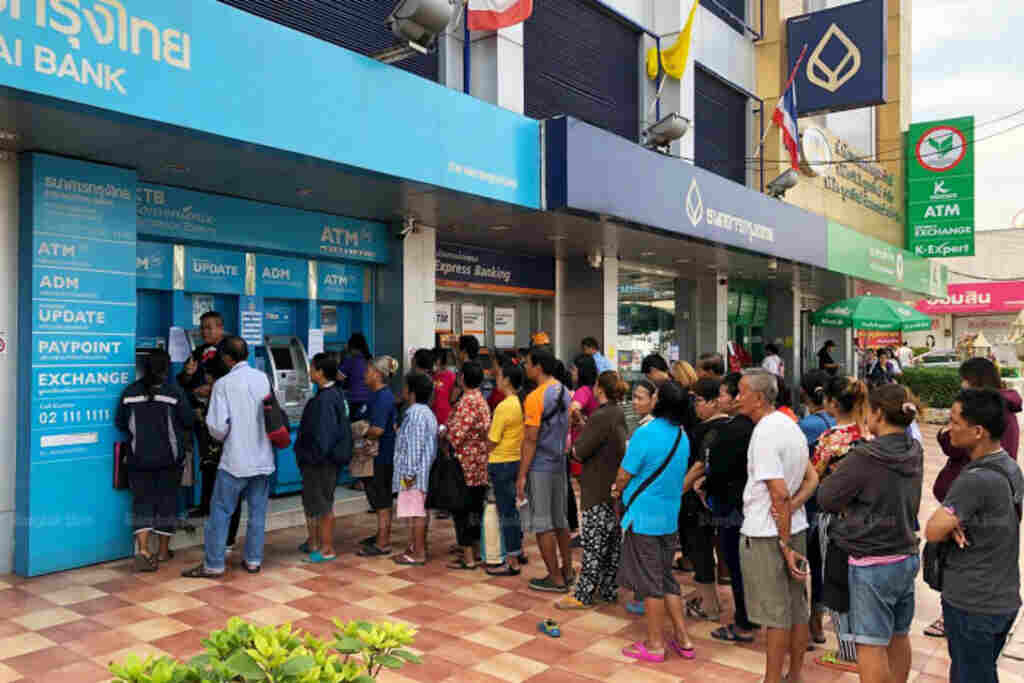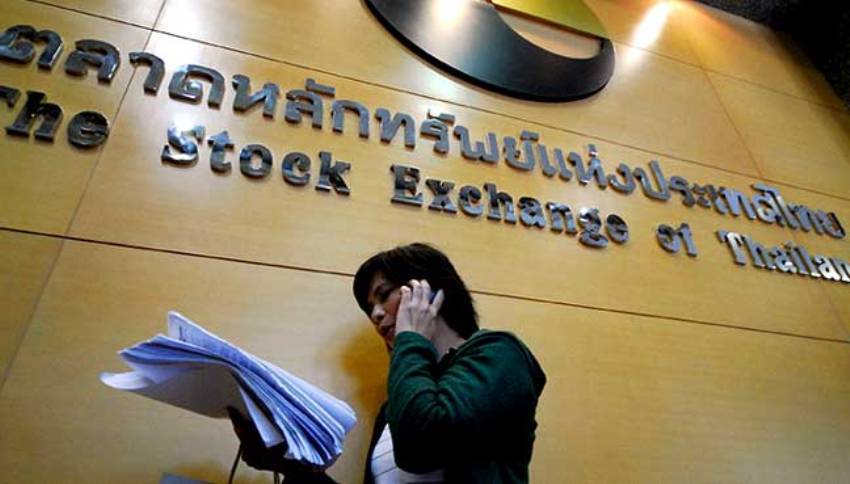Business
Thailand’s Economy Recovering Despite US Fed Rate Increase

Thailand’s economy is facing new challenges as a result of global volatility, but it is still recovering, with policies in place to ensure a continued recovery, according to the central bank chief on Friday.
While the global slowdown will affect Thai exports, the recovery in private consumption and tourism will support Southeast Asia’s second-largest economy, according to Bank of Thailand Governor Sethaput Suthiwartnarueput at a business seminar.
Further interest rate increases would be gradual and measured, he said, adding that the BOT is prepared to adjust the pace if necessary.
In contrast to other economies, aggressive rate hikes are inappropriate for Thailand because the economy is still in its early stages of recovery, while inflation is easing and should return to the Bank of Thailand’s target range of 1% to 3% in the second half of 2023, he said.
“Rate hikes in other countries reflected their hot economies and demand-driven inflation, but we don’t see this in our country because inflation is primarily supply-driven. The inflation engine has yet to fire up “He stated.
In three meetings since August, the Bank of Thailand has raised its key interest rate by a total of 75 basis points. It will review policy again on January 25, when economists anticipate another hike.
As Thailand’s economic recovery has lagged that of other Southeast Asian countries, the tightening cycle has been less aggressive than in many of the region’s other countries, with the crucial tourism sector only beginning to pick up this year.
The central bank predicts that the economy will grow 3.2% this year and 3.7% in 2023.
According to Sethaput, next year’s growth forecast may face risks, but the likelihood of growth exceeding 3% remains high.
High household debt could destabilize the economy and must be reduced to sustainable levels, he added.
Following a hearing in January, the BOT expects to issue rules for virtual banks early next year, according to Sethaput.
Thailand’s Foreign Investment on the Rise
The Department of Business Development, Ministry of Commerce, Thailand’s Eastern Economic Corridor (EEC) generated 48.3 billion baht in revenue from January to November, accounting for 43% of the money invested in the EEC project.
According to Deputy Government Spokesperson Tipanan Sirichana, foreign direct investment (FDI) in the EEC region totaled 48.3 billion baht from January to November.
According to data from the Department of Business Development, there are 105 foreign investors in the EEC area, accounting for 20% of all investors.
A group of 42 Japanese investors has the highest FDI worth 24.5 billion baht out of all 105 investors. Ms Tipanan added that nine Chinese investors spent 10.9 billion baht in the EEC area, while nine Singaporean investors spent 2.1 billion baht.
She stated that the majority of investments were made in major businesses such as international logistics, software development, cargo management, and engineering and technology.
She predicted that more investors would enter the EEC this month, increasing FDI in Thailand. According to Ms Tipanan, the National Economic and Social Development Council (NESDC) is encouraging FDI in the EEC region, particularly in seven targeted industries.
“The EEC is an urgent project established by Prime Minister Prayut Chan-o-cha for the younger generation to improve our country’s ability to compete in the global market,” Ms Tipanan explained.
She also stated that the EEC has ushered in the development of transportation infrastructure that connects Thailand to the region and improves the quality of life for locals. The initial focus of the EEC project is on the three eastern provinces of Rayong, Chon Buri, and Chachoengsao.
SET Index Makes Small Gains
The SET index rose earlier this week before falling to around 1,620 following the US Federal Reserve’s latest interest rate decision. Investors are now concerned that the rate of increase will not slow as much as the market had anticipated.
While the Fed raised its benchmark rate by 50 basis points as expected, it also indicated that rates will likely remain high in 2023 before declining in 2024. The Fed also reduced its forecast for US GDP growth in 2023 to 0.50% from 1.2% previously. The bad news sparked a sell-off in global equities.
In the short term, we expect the SET Index to trade in a “sideways-up” pattern. Profit-taking pressure is expected to ease as investors begin to re-accumulate stocks. Next week’s support is set at 1,615 points, with resistance at 1,640 and 1,650.
With little turnover expected in the final two weeks of the year, the SET should remain relatively stable. The main strategy is to select stocks that will benefit from next year’s positive catalysts, such as those related to electric vehicles (EV production, parts, and electronics) and manufactured goods that will benefit from lower inflation.
Among the positive factors, global inflation is clearly slowing and has thus far fallen faster than expected. The most recent data from major markets showed broad-based declines (not just in energy prices), reinforcing views that inflation has already peaked. Meanwhile, inflationary pressures will cause costs to gradually decrease. We believe that the end of the current “ice age” will signal the beginning of a new bull run.
Prospects for economic growth in 2023 will differ significantly from those for this year. Developed economies such as the United States and the majority of European countries will experience slower growth, while developing countries such as Thailand will likely show more visible signs of recovery. This will almost certainly drive fund flows from developed to emerging markets.
Furthermore, Thailand remains optimistic about China’s full reopening, which is expected by mid-2023, resulting in an increase in the number of inbound Chinese tourists and business travelers. As a result, stocks related to tourism, retail, luxury goods, industrial estates, and property may perform exceptionally well for a period of time.
Ports and logistics businesses will also resume normal operations as an indirect benefit. Factories in China will return to full capacity, while many new plants in various countries are about to begin operations, alleviating supply shortages in certain sectors.
Greater volumes and the resumption of order deliveries will benefit the supply chains for automobiles (which are now shifting to EV parts) and electronics (China is a key manufacturer). They will also benefit from future opportunities as the EV trend grows, which could lead to widespread use of semiconductors.
The upcoming Thai election, which must be held by May 7 of next year, could also provide encouragement. Based on our analysis of statistics from the previous 11 elections (2001-19), we discovered that returns on the SET typically begin to turn positive about 10 days before the election date and remain positive for 10 to 30 days afterward.
Banks, commerce, industrial estates, food, and tourism are targeted sectors that typically outperform the market during this period in anticipation of economic stimulus from a new government. In general, political conditions are usually favorable during an election season.
Among the negative factors, the baht has strengthened in response to general dollar weakness. The baht may rise further in tandem with ongoing foreign inflows. Excessive baht strength could harm exporters if the exchange rate reaches 30-32 baht to the US dollar, levels that have previously prompted exporters to call for aid measures.
Furthermore, if the Western recession is more than just a technical one, the market could suffer from a prolonged sluggish trend.
On the domestic front, investors should keep an eye on extravagant election campaign promises and their potential economic consequences. Excessive wage increases, for example, could have a negative impact on labor-intensive industries such as construction and agriculture.































